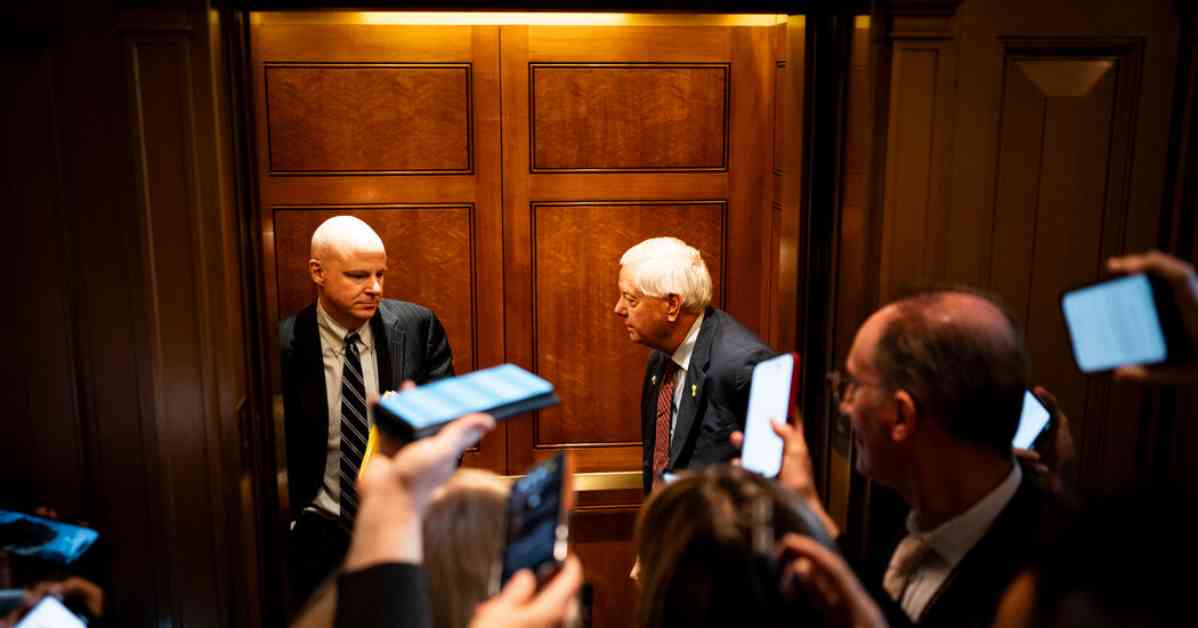Senate Republicans Pass Budget Resolution, Tackle Tough Issues
In a decisive move, Senate Republicans successfully passed a budget resolution, laying the groundwork for President Trump’s ambitious domestic agenda. The vote, 52-48, highlighted a clear divide between party lines and set the stage for significant increases in military and border security spending over the next decade. However, the crucial questions of how to fund these initiatives and deliver on promised tax cuts remained unanswered, leaving many wary of the future financial landscape.
Navigating the Fiscal Landscape
Amidst the fervor of political maneuvering, Senator Lindsey Graham, the chairman of the Senate Budget Committee, stepped into the spotlight. He outlined a plan to finance the budget through a combination of revenue from domestic drilling and unspecified spending cuts. While this approach provided a temporary solution, the larger issues of sustainable funding and long-term economic impact loomed large on the horizon.
The House of Representatives, embroiled in its own deliberations, grappled with the daunting task of finding $2 trillion in spending cuts to align with President Trump’s fiscal goals. The proposed plan, aiming to consolidate tax cuts and policy reforms into a comprehensive package, faced considerable resistance within the closely divided House. The intricate dance of balancing the budget, cutting programs, and maintaining party unity showcased the intricate web of political alliances at play.
A Delicate Balance
Senator Graham articulated the Senate’s strategic approach, emphasizing the prioritization of security measures while deferring decisions on tax cuts and spending reductions to a later date. By focusing on bolstering border security and providing immediate support for the President’s anti-immigration stance, Republicans sought to secure an early victory for the administration. However, the unresolved financial quandaries cast a shadow of uncertainty over the future trajectory of the budget deliberations.
As Senator Graham aptly put it, “We’ve decided to front-end load security. We want to make the tax cuts permanent.” This succinct statement encapsulated the overarching strategy of the Republican Senate—to address pressing security concerns first and tackle fiscal challenges in subsequent legislative sessions. The delicate balancing act of prioritizing immediate needs while keeping an eye on long-term financial stability underscored the complex nature of budget negotiations in a politically charged environment.
The Road Ahead
With the passage of the budget resolution, Senate Republicans set the stage for a series of critical decisions that would shape the nation’s economic landscape for years to come. The looming questions of funding mechanisms, tax cuts, and program cuts remained unresolved, signaling a rocky road ahead for policymakers. As the House prepared to deliberate on its own fiscal proposals, the intricate dance of political negotiations and policy compromises unfolded against a backdrop of uncertainty and division.
In the intricate tapestry of budget deliberations, the Senate’s bold move marked a pivotal moment in the ongoing saga of fiscal policy in the United States. As lawmakers grappled with competing priorities and divergent perspectives, the path to a sustainable budgetary framework appeared fraught with challenges and opportunities. The next chapter in this unfolding narrative would undoubtedly shape the nation’s economic future and test the resilience of its political institutions.
Thank you for your patience while we verify access. If you are in Reader mode please exit and log into your Times account, or subscribe for all of The Times. Thank you for your patience while we verify access. Already a subscriber? Log in. Want all of The Times? Subscribe.

